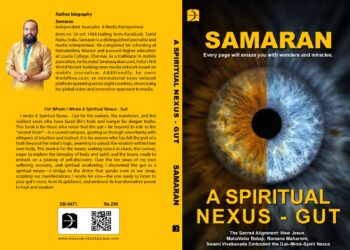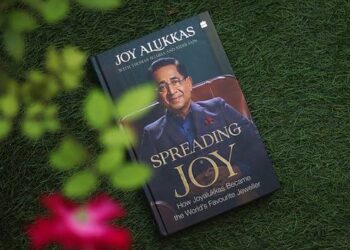In the annals of history, few figures loom as large as Mahatma Gandhi and Nelson Mandela, two titans whose philosophies of nonviolence and reconciliation reshaped the global struggle for justice, equality, and human dignity. Their legacies, rooted in distinct yet interconnected battles against oppression, continue to inspire movements worldwide, offering timeless lessons in resilience, moral courage, and the power of unity.
Gandhi: The Architect of Nonviolent Resistance
Mohandas Karamchand Gandhi, fondly known as the “Father of India,” pioneered the philosophy of *Satyagraha*—nonviolent resistance—as a weapon against colonial oppression. His leadership in India’s independence movement against British rule (1915–1947) demonstrated the transformative potential of peaceful protest. From the Salt March of 1930 to his advocacy for self-reliance through *swadeshi* (local production), Gandhi’s strategies galvanized millions, proving that moral force could dismantle entrenched power structures.
Gandhi’s influence transcended India’s borders, shaping global civil rights movements. His emphasis on truth, nonviolence, and universal dignity resonated with leaders across continents, from Martin Luther King Jr. in the United States to anti-colonial activists in Africa and Asia. Gandhi’s philosophy offered a blueprint for challenging systemic injustice without resorting to violence, earning him enduring reverence as a global symbol of peaceful resistance.
Mandela: The Beacon of Reconciliation
Nelson Mandela, South Africa’s first Black president, emerged as a global icon through his relentless fight against apartheid—a brutal system of racial segregation enforced by South Africa’s white minority government. Imprisoned for 27 years, Mandela’s unwavering commitment to equality and his eventual embrace of reconciliation over retribution transformed South Africa and inspired the world.
Mandela’s leadership in the African National Congress (ANC) and his role in negotiating the end of apartheid culminated in South Africa’s first democratic elections in 1994. His presidency (1994–1999) prioritized healing a divided nation through the Truth and Reconciliation Commission, which sought to address past atrocities while fostering unity. Mandela’s ability to forgive without forgetting earned him admiration as a statesman who prioritized humanity over vengeance.
A Shared Vision, Distinct Contexts
While Gandhi and Mandela operated in different eras and contexts, their struggles were united by a common thread: the fight against systemic oppression. Gandhi’s battle was against colonial exploitation, rooted in economic and cultural subjugation. Mandela confronted racial apartheid, a system designed to dehumanize and segregate. Yet both leaders recognized the power of moral authority and collective action in dismantling injustice.
Gandhi’s nonviolence directly influenced Mandela, who studied *Satyagraha* during his early years as an activist. Although Mandela initially supported armed resistance against apartheid’s violence, he later embraced Gandhi’s principles of dialogue and reconciliation, particularly during South Africa’s transition to democracy. This convergence underscores a shared belief in the dignity of all people, regardless of race, creed, or status.
Global Impact and Contemporary Relevance
The legacies of Gandhi and Mandela remain profoundly relevant in today’s polarized world. Gandhi’s nonviolent principles continue to inspire climate activists, indigenous rights movements, and advocates for social justice, from Hong Kong’s pro-democracy protests to global campaigns against inequality. His emphasis on sustainability and community empowerment resonates in debates over environmental justice and economic equity.
Mandela’s vision of reconciliation offers a model for societies grappling with division, whether in post-conflict nations or polarized democracies. His approach to forgiveness without amnesia informs efforts to address historical injustices, from reparations debates in the United States to truth commissions in Latin America and Africa. Mandela’s global advocacy for human rights, including his work on HIV/AIDS awareness, cemented his role as a universal voice for compassion.
Both leaders’ philosophies have been invoked in recent global movements. For instance, posts on X in 2025 highlight how Gandhi’s nonviolence inspires climate activists in Europe, while Mandela’s reconciliation model is cited in discussions on post-conflict rebuilding in regions like Ethiopia and Myanmar. Their ideas continue to shape discourse on justice, equality, and human rights, amplified by digital platforms and grassroots movements.
Challenges and Critiques
Despite their monumental contributions, both Gandhi and Mandela faced criticism. Gandhi’s ascetic lifestyle and views on caste and gender have been debated by modern scholars, who argue his approach sometimes reflected the era’s limitations. Similarly, Mandela’s presidency faced scrutiny for economic inequalities that persisted in post-apartheid South Africa, with some critics arguing that his focus on reconciliation sidelined systemic reforms.
Yet, these critiques do not diminish their impact. They highlight the complexity of leading transformative movements in deeply divided societies, where pragmatic choices often accompany moral ideals.
A Timeless Legacy
As the world navigates rising authoritarianism, social inequities, and global crises, the legacies of Gandhi and Mandela offer enduring lessons. Gandhi’s nonviolence reminds us that change can be achieved through moral courage and collective will. Mandela’s reconciliation teaches that healing is possible even after profound injustice. Together, their lives underscore the power of principled leadership in building a more just world.
In 2025, as global challenges test humanity’s resolve, the examples of Gandhi and Mandela remain beacons of hope. Their legacies are not relics of the past but living blueprints for a future where dignity, equality, and justice prevail.







































